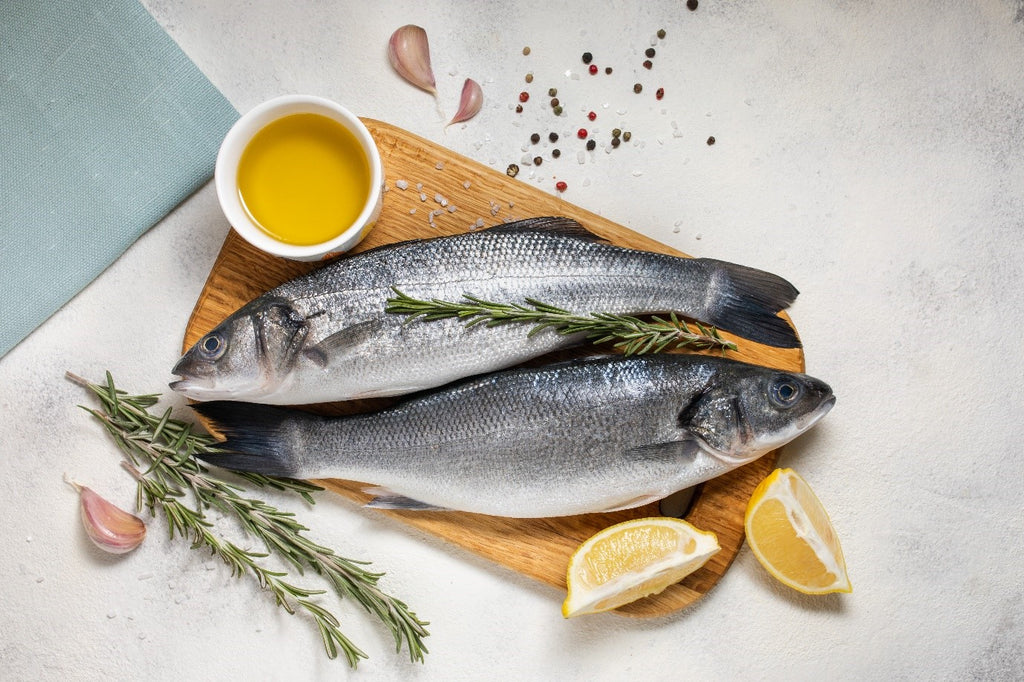Mood enhancers are the mood support supplements used for mood alteration in people who are not mentally healthy. Living with mood imbalances can badly create disturbance in energy levels, routine activities, and your relationships.
Emotions are different from mood because they tend to last for days, while emotions are short-lived feelings.
Good mental health has a strong link with good physical health. Consistent mood imbalances can result in mood disorders, which have a direct impact on mental health.
Change in mood is influenced by various factors like nutritional deficiencies, stress, genetics, poor sleep, and other related factors.
Many approaches can be adapted to treat mood disorders by boosting mood support. In the presence of tryptophan, serotonin is released by the brain, which helps regulate a good mood.
The normal serotonin level in the blood is 101-283 ng/mL. For the management of normal serotonin levels, the intake of natural mood enhancers is required.
Natural supplements that act as mood regulators are known as mood food. The research on the foods that can be used as a mood support supplement has been emerging with time.
The natural supplements that can serve as mood enhancers to maintain a healthy mood and improve quality of life can be used for different types of mood disorders.
Here are 12 healthy food supplements for mood support.
1. St. John's wort
St. John's wort is one of the common mood support supplements. St. John's wort is scientifically named Hypericum perforatum. It is a herbal remedy used for the treatment of low mood and mild anxiety.
St. John's wort has a long history of use in the field of medicine and has reported positive results. In a 2008 review based on 29 international studies, St. John's wort was reported to have a better effect than a placebo for the treatment of mild to moderate severity of depression.
If you are on a medication, it is not recommended to take St. John's wort because it has interactions with many medications. St. John's wort's typical dose is 900-1200mg/day for a maximum of three months.
2. Vitamin D
Vitamin D or sunshine vitamin plays an important role in brain functioning. Low levels of Vitamin D are linked with the severity of mental illness.
According to a 2012 study in BMC Psychiatry, an increased vitamin D content in the human body alleviates mood disorders.
According to a nutritionist, intake of natural foods like eggs, orange juice, tuna, and others help maintain Vitamin D levels because routine exposure to the sun increases the likelihood of skin cancer.
According to Mayoclinic, the average suggested dose for daily intake ranges between 400-800 IU per day.
Vitamin D with K2is a mood enhancer and is significantly associated with preventing anxiety and depression through mood support.
3. SAMe (S-Adenosyl-L-Methionine)
A review based on 28 studies showed that the statistical production of SAMe brings improvement in depression symptoms. The effect of SAMe is better than a placebo effect.
The improvements in the depressive symptoms were compared with the conventional anti-depressants, i.e., similar to the medications related to tricyclic antidepressants.
SAMe as a mood enhancer should be consumed with caution if you suffer from any altered medical condition. Dependent on the tolerance level, the typical dose of SAMe is recommended to be 400-800mg per day.
4. Saffron

Saffron's exertion of the anti-depressant effect is through modulation of serotonin levels in the brain that is a mood-elevating neurotransmitter. The presence of phytochemical agents in saffron perform pharmacological functions.
It protects the brain cells from oxidative stress and improves memory and mood support. The intake of saffron is considered safe for about 6-12 weeks.
In a 6-week double-blind randomized clinical trial, the use of dried petals of saffron showed effective results for the treatment of mild-to-moderate depression.
A 2018 review in the Journal of Pharmacy and BioAllied Sciences using saffron is not recommended for pregnant women because of toxic effects that might be induced by the intake of around 5g of saffron.
The organic and pure saffron is caffeine-free and brings significant mental health, vision, and mood support.
5. Probiotics
Another mood support supplement is probiotics. Probiotics are commonly found in fermented foods like yogurt, kefir, sauerkraut, kombucha improves mood.
Probiotics refer to healthy microbial growth in the stomach produced during the process of fermentation. Increased growth of healthy bacteria leads to increased levels of serotonin.
Around 90 percent of gut microbes lead to serotonin production and other important chemicals in the body. And, about 95 percent of serotonin is produced in the digestive tract.
Probiotics have anti-inflammation properties that create a positive effect to decrease the signaling of stress and increase the serotonin transformation from tryptophan.
Probiotics should be taken on an empty stomach before breakfast and are considered safe for daily intake. But it is important to know that not every fermented food is rich in probiotics. Such food may include wine, bread, beer, etc.
6. Omega-3 fatty acids

In a 2009 review, the omega-3 fatty acid utilization as a mood support supplement reduced the depression symptoms. This study was based on three studies to compare the omega-3 effect in comparison with a placebo.
Omega-3 supplements from fish contain Eicosapentaenoic acid (EPA), which acts as a mood regulator, i.e., maintenance of healthy mood. Considering the pathophysiology of mood disorders, the EPA helps reduce inflammatory processes in the brain and maintain balance in the metabolic pathways.
Mayoclinic reported the use of 1000g of EPA safe and effective for the treatment of depressive states. It is an essential fatty acid required for the normal functioning of the body.
According to a 2012 study in Molecular Psychiatry, around 3g of omega-3 fish oil supplements can be taken for mood support.
A good source of omega-3 fatty acid is flaxseeds, which can be consumed one tablespoon per day.
7. Chocolate
The high content of carbohydrates in chocolate increases the tryptophan level in the brain, which, as a result, increases the serotonin level and create s a sense of good feeling.
A 1998 study in the International Journal of Psychophysiology reported that brain activity is modulated by chocolate's color, which brings a significant reduction in theta activity. Such implication leads to increased distractions and lower attention levels.
Eating chocolate is found to elevate the positive mood and make people feel better. More than 350 chemicals in chocolate, two of which are responsible for changing the mood, are theobromine and phenylethylamine.
These chemicals are similar in function to cannabinoids, mainly found in marijuana, and are known for mood support.
In the British Journal of Clinical Pharmacology, a 2013 study reported that chocolate consumption is largely known to improve mood as it contains serotonin. The production of endorphins leads to the creation of feelings of pleasure.
In a 2013 study, the division of 72 female participants was in three different groups and was treated with cocoa and phenol. The number of polyphenols varied in 0mg, 250mg, and 500mg. The study outcomes showed that female participants who had a high amount of polyphenols experienced great improvement in mood felt content and calm.
8. GABA
While listing mood support supplements, naturally occurring supplement GABA supports the functions of the brain. The intake of GABA as a mood regulator positively affects mood, tension, anxiety, and premenstrual symptoms.
GABA acts as a neurotransmitter inhibitor that decreases the nervous system activity through inhibition of brain signaling.
The attachment of GABA to its receptor leads to the production of calming effect.
A 2016 study in the Neuroimage found that GABA production is increased by the increased consumption of probiotics leading to the reduction of depression and anxiety.
The processed product of GABA with some other essential chemical components brings improvement in cognitive skills and mood support.
9. Berries

Many antioxidants and phenols are present in berries, which helps to combat oxidative stress because oxidative stress is an imbalance of unwanted substances in the human body.
Increased consumption of fruits and vegetables is found to be associated with low rates of depression, management of inflammation, and alteration of mood disorders.
According to a 2018 study, the presence of a high amount of anthocyanins responsible for giving purple-blue coloration to the berries reduces the symptoms of depression by 39 percent.
10. Herbal Teas

Herbal teas that contain calming properties include chamomile. Whereas red, green, and black teas contain a high amount of antioxidants.
A 2016 Randomized control trial study in Phytomedicine demonstrated that chamomile tea reduces generalized anxiety disorder symptoms.
Green tea consumption increases the level of serotonin, and dopamine showed a low prevalence of depressive symptoms.
According to a 2014 study, drinking lemon balm tea with yogurt or ice showed a positive effect in reducing anxiety levels and promoted mood support. The lemongrass's aroma not only improves the freshness of the environment but also lifts the low mood.
Drinking a warm teacup helps in relieving stress and lifts the mood support.
11. Berberine
One of the traditional Chinese herbal medicine used for many years has now been an active component in natural supplements. It is a natural isoquinoline alkaloid that has been used in the treatment of mood disorders for years.
It functions by modulating neurotransmitters and their receptors in the CNS (Central Nervous System).
Many studies have shown that it can cross the blood and brain barrier, resulting in a protective effect to reduce mental depression symptoms.
Other than the ability to treat mood disorders, Berberine herb has other potential benefits that positively influence people's well-being.
Animal studies have suggested that berberine effectively alleviates depression symptoms and protects the body from damage related to depression.
12. Ginkgo Biloba
Ginkgo Biloba is a native Chinese plant with a long history of use as a core component in herbal remedies. Ginkgo as a mood support supplement brings improvement in the brain's mood, mental health, and functioning.
According to one test-tube study, Ginkgo Biloba's extract increased the secretion of dopamine and reduced oxidative stress. High levels of terpenoids and flavonoids induce the anti-oxidant effect of the plant.
Repeated evaluation of Ginkgo Biloba showed that it plays an important role in improving brain blood flow.
Taking Ginkgo for mood support increase the mental health of people and perceived well-being.
A 2007 study involved 170 participants with GAD and was treated with two different doses, i.e., 240mg and 480 mg. The test group treated with 480mg of Ginkgo showed a significant reduction in the symptoms of anxiety compared to placebo.
The Bottom Line
The above discussion about the use of possible mood support supplements improved the mood and reduced anxiety and depression. However, different methods can be used to stabilize mood.
However, it is somewhat difficult to claim the extent to which these supplements can help you with mood support.
The most effective mood support supplements include GABA, Saffron, and Vitamin D. These three natural supplements are reviewed historically and have been known to give positive effects with no possible risk.
These supplements can improve mood support and lift your spirits.
With the intake of these supplements, some additional efforts would improve the results for mood support. This includes exercise and limiting the alcohol intake. It is important to make sure that each supplement is taken as per the recommended daily dose. Because relatively high intake might cause serious health problems, which may worsen the mental state of the individual


